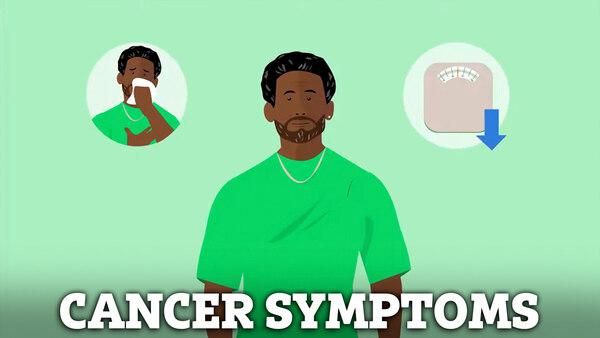Daily pill for ‘devastating and debilitating’ cancer to be rolled out on NHS


A DAILY pill for the most common form of bladder cancer has been given the green light for NHS use.
Erdafitinib, which blocks certain proteins to slow down or stop the growth of cancer cells, is expected to benefit hundreds of people.
The drug, sold under the brand name Balversa and made by Johnson & Johnson, has been recommended by the National Institute of Health and Care Excellence (NICE) to adults with metastatic or unresectable FGFR-altered urothelial cancer who have previously received at least one line of immunotherapy that blocks the interaction between certain proteins.
Around 420 patients in England are expected to eligible.
Erdafitinib is a once-a-day tablet which can be taken at home.
NICE based its recommendation on data from a study which showed the medicine to increase overall survival from 7.8 months to 12.1 months compared to chemotherapy.
According to the NHS, about 10,000 people are diagnosed with bladder cancer in the UK every year.
Urothelial cancer develops in the cells that form the inner lining of the bladder, urethra, ureter, or renal pelvis, the hollow part in the middle of each kidney.
It accounts for about 90 per cent of all bladder cancers, according to NICE.
Helen Knight, director of medicines evaluation at NICE, said: "I am pleased we have been able to recommend this effective, targeted treatment option which will make a significant difference to people's lives.
"There are limited treatment options for this devastating and debilitating disease, which in many cases responds poorly to immunotherapies, so I'm sure today's guidance will be welcomed by patients.
"One of the benefits of this drug is it can be taken in the comfort of the patients' own home rather than having to travel to hospital to receive the treatment."
Melanie Costin, interim chief executive officer at Fight Bladder Cancer, added: "It’s absolutely fantastic news to hear that erdafitinib has been approved.
"This decision brings real hope to those with very few options, hope not only for the chance of more time, but to have a better quality of life when time is so limited and precious.
"This is a transformative moment as it is the very first time that our bladder cancer patients will have access to a personalised treatment, and is a significant step forward in care.
"Additionally, we hope this opens the door for more targeted clinical trials through genetic testing, and drives us forward to the time that every patient has access to therapies designed specifically for them."
Erdafitnib represents a new area of treatment for bladder cancer
Jeannie Rigby
The most common side effects of erdafitinib were high blood phosphate levels, diarrhoea, and inflammation of the mucous membranes that line the mouth and lips.
A fifth of patients had to discontinue treatment due to adverse reactions.
Jeannie Rigby, chief executive of the charity Action Bladder Cancer UK, said: "Erdafitnib represents a new area of treatment for bladder cancer.
"Bladder cancer has been badly neglected in terms of new treatments, and there are few current treatments available – which has had a direct impact on poorer outcomes for those with bladder cancer.
"It’s time that bladder cancer patients had some kind of new treatment available.
"We hope this is just the start of new hope for those with bladder cancer and their families."
A spokesperson for the British Uro-oncology Group added: "People with advanced or metastatic bladder cancer tend to face a poor prognosis, and – until now – have had no targeted therapies available to them on the NHS.
"Today’s recommendation marks a step-change improvement in the management of urothelial cancer.
"As both a targeted and oral treatment, this potentially life-extending precision medicine option is a welcome advance for this disease."
THE exact causes are unknown, but there are a number of things that can increase your risk.
Like with many cancers, bladder cancer appears to be caused by exposure to harmful substances, which lead to abnormal changes in the bladder's cells over many years.
Tobacco smoke is a common one, and it's estimated that more than one in three cases of bladder cancer are caused by smoking.
Contact with certain chemicals previously used in manufacturing is also known to cause bladder cancer.
However, these substances have since been banned.
Jobs linked to an increased risk of bladder cancer are manufacturing roles involving: dyes, textiles, rubbers, paint, plastics and leather tanning.
Some non-manufacturing careers have also been linked to an increased risk of bladder cancer, including taxi or bus drivers, as a result of their regular exposure to the chemicals present in diesel fumes.
Other factors that can increase your risk of bladder cancer include:
Source: NHS